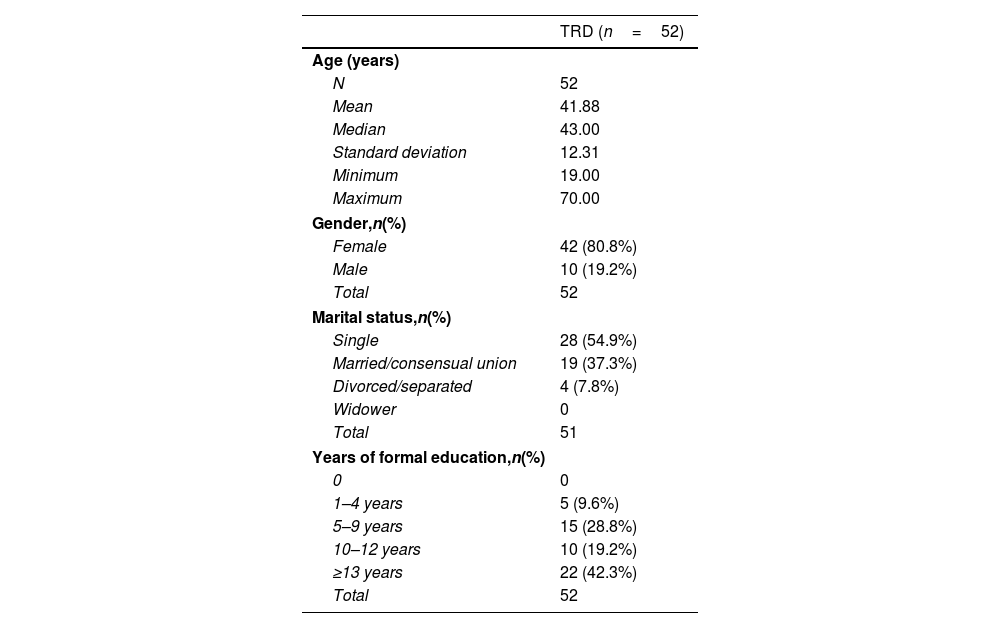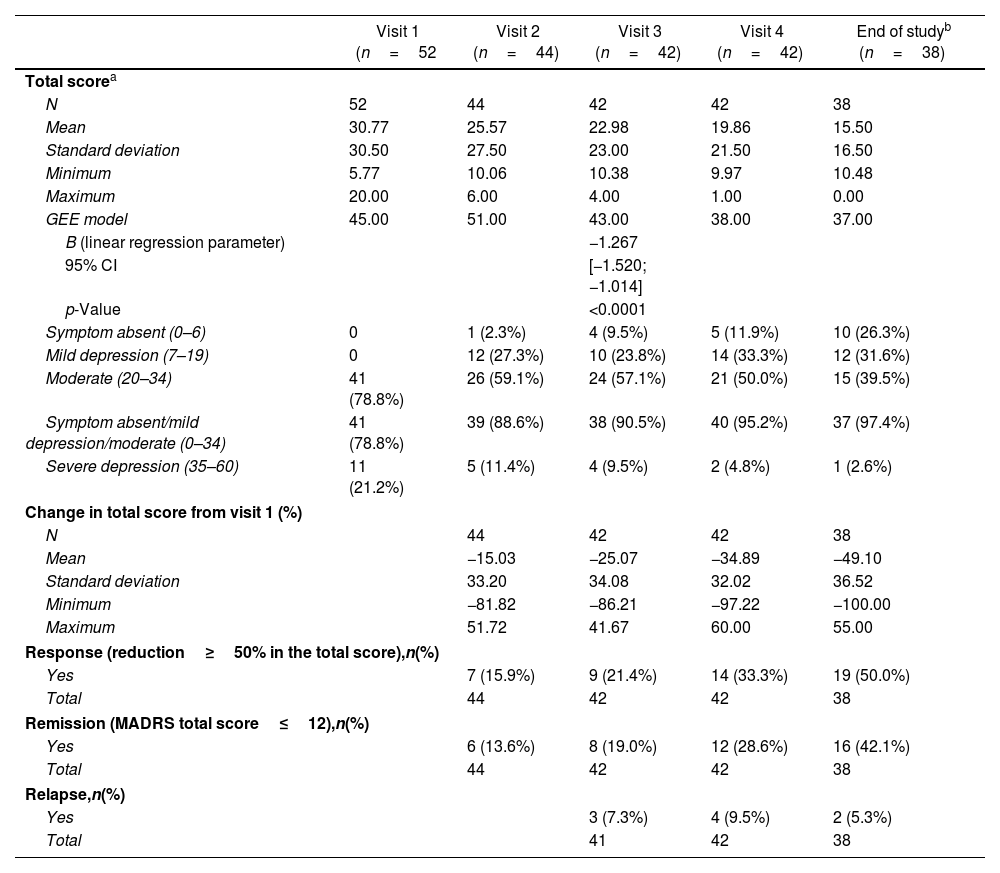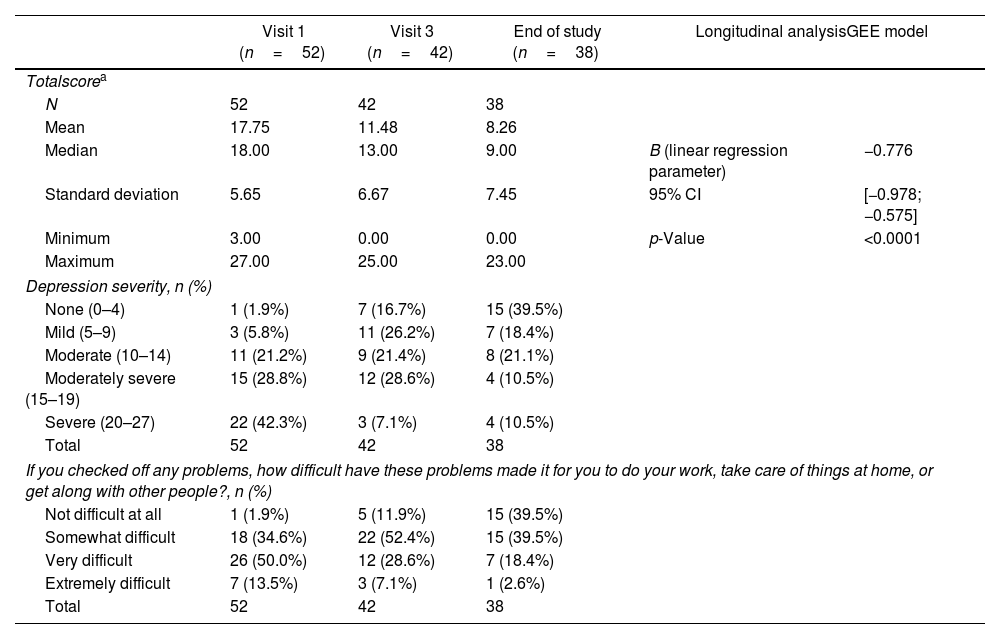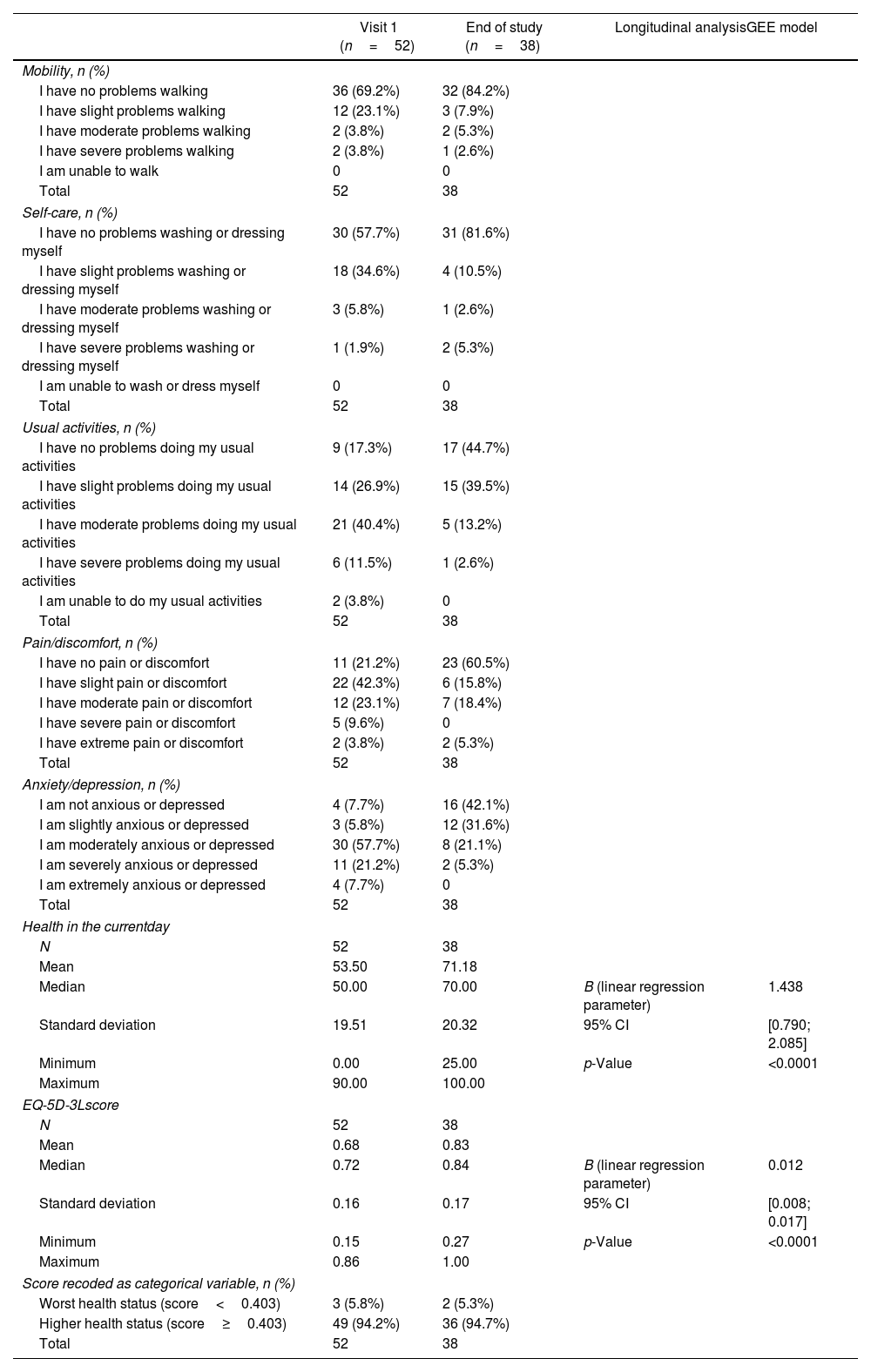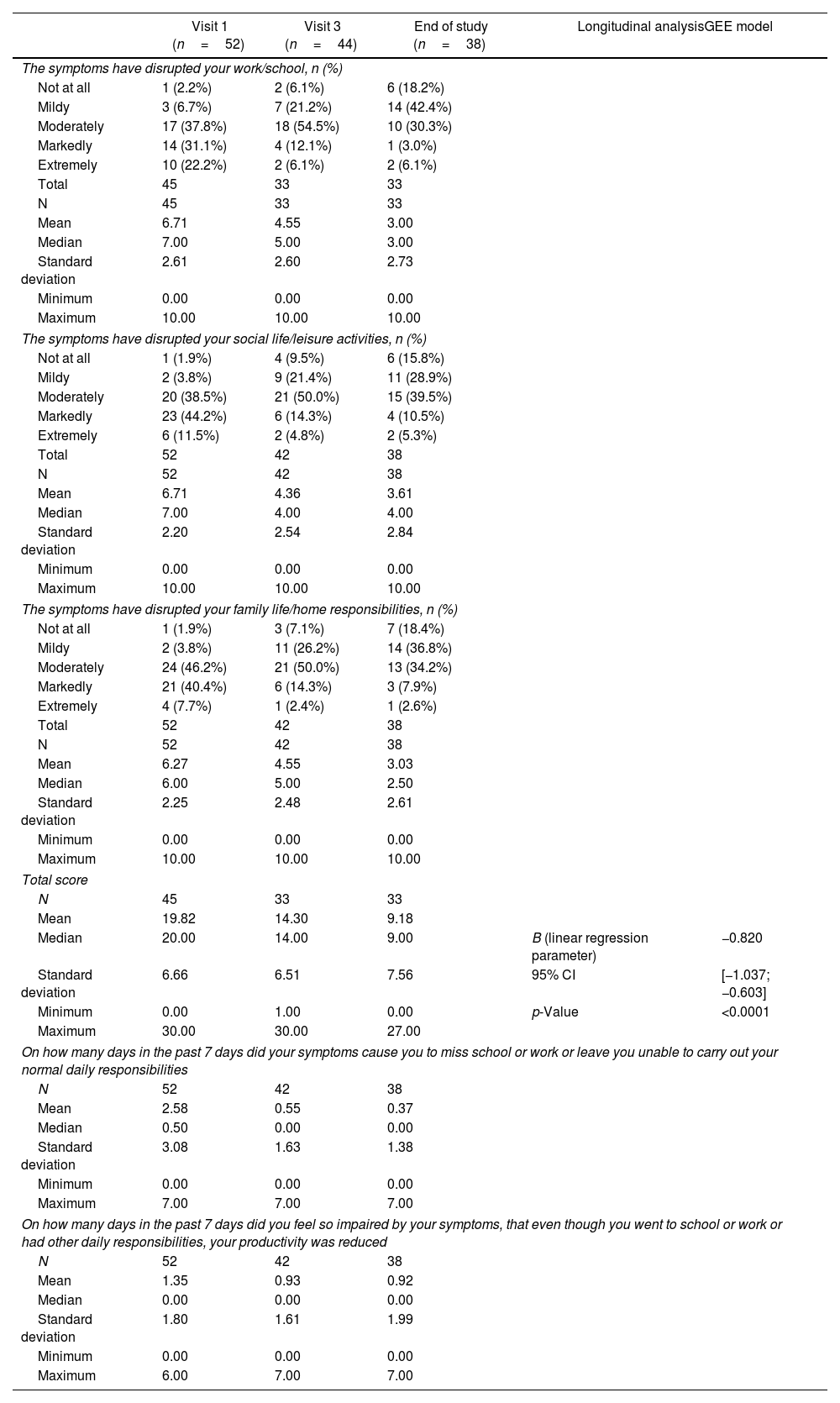This manuscript reports on the clinical outcomes (response, remission and relapse) in TRD patients in Colombia under Standard-of-Care (SOC), and patient reported outcomes (PROs) – QoL, disability, depression severity – over a 1-year follow-up.
Materials and methodsFrom a sample of 162 MDD patients from 4 centres in Colombia, 52 had a formal diagnosis of TRD and were included in the 1-year follow-up. Exclusion criteria were patients with psychosis, schizophrenia, bipolar disorder, schizoaffective disorder, dementia, with severe chemical dependence or currently participating in another clinical trial. Clinical outcomes were measured with MADRS and PHQ-9, while PROs included EQ-5D (QoL) and Sheehan Disability Scale (SDS – disability).
ResultsPatients’ mean age was 41.88 years, 80.8% of which were female, 37.3% were married or on consensual union and 42.3% had at least 13 years of formal education. Half of the sample achieved clinical response after 1-year of follow-up, while remission was not achieved by 57.9% of the participants (MADRS). Over 60% of the patients had mild to severe depression at the end of study (PHQ-9), while 57.9% reported feeling anxious/depressed (EQ-5D). Over three-quarters of the sample reported disruption in work/school, social life/leisure and family/home responsibilities (SDS).
ConclusionsPresent results for Colombia underline the burden of TRD in most aspects of daily living. Current SOC fails to deliver the necessary clinical outcomes and patient centric approach, which suggests the need to improve treatment protocols, while increasing access to specialists, foster earlier diagnosis and the implementation on a nationwide programme for mental health.
Informar resultados clínicos (respuesta, remisión y recidiva) en personas con depresión resistente al tratamiento (DRT) en Colombia según el estándar de atención (SOC) y los resultados informados por el paciente (PRO) en el Quality of Life Questionnaire (QoL), discapacidad y gravedad de la depresión durante un año de seguimiento.
Material y métodosDe una muestra de 162 pacientes con monitorización terapéutica de drogas (TDM) de cuatro centros en Colombia, se incluyeron a 52 con diagnóstico formal de DRT en el año de seguimiento. Se excluyeron aquellos con psicosis, esquizofrenia, trastorno bipolar, trastorno esquizoafectivo, demencia, dependencia farmacológica grave o participando actualmente en otro ensayo clínico. Los resultados clínicos se midieron con Montgomery-Asberg Depression Rating Scale (MADRS) y el cuestionario de salud del paciente-9 (PHQ-9); los PRO incluyeron el EuroQol-5D (EQ-5D) y la escala de discapacidad de Sheehan (SDS).
ResultadosSe obtuvo un promedio de edad de 41,88; 80,8% mujeres; 37,3% casados o en unión consensual; 42,3% tenían al menos 13 años de educación formal. La mitad de la muestra alcanzó respuesta clínica tras un año de seguimiento y 57,9% de los participantes no tuvo remisión (MADRS). Más de 60% de los pacientes tenía depresión leve a grave al final del estudio (PHQ-9) y 57,9% informó sentirse ansioso/deprimido (EQ-5D). Más de 3/4 de la muestra informaron alteración en el trabajo/escuela, vida social/tiempo libre y responsabilidades familiares/del hogar (SDS).
DiscusiónEstos resultados para Colombia subrayan la carga de la DRT en la mayoría de los aspectos cotidianos. Este SOC no ofrece los resultados clínicos necesarios ni un enfoque centrado en el paciente; sugiere la necesidad de mejorar protocolos de tratamiento, aumentar el acceso a especialistas, promover el diagnóstico precoz e implementar un programa nacional de salud mental.
Artículo
Comprando el artículo el PDF del mismo podrá ser descargado
Precio 19,34 €
Comprar ahora





